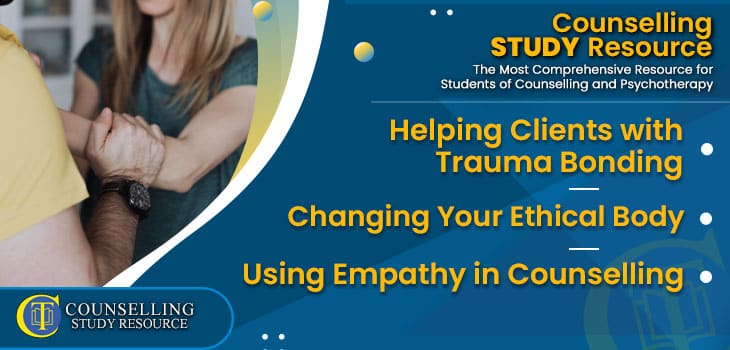See Counselling Skills Used in Real Sessions by Qualified Therapist
Real Sessions – Real Presentations – Real Skills
Gain the competence and confidence to use counselling techniques effectively!

In Episode 252 of the Counselling Tutor Podcast, your hosts Rory Lees-Oakes and Ken Kelly are back with this week’s three topics:
Major Indicators of Trauma Bonding
Trauma bonding is when an individual, maybe in some kind of abusive relationship, either can’t leave or keeps going back.
The key features of this discussion on helping clients with trauma bonding include:

Real Sessions – Real Presentations – Real Skills
Gain the competence and confidence to use counselling techniques effectively!
It can feel like a daunting task to change your ethical body, but Rory and Ken discuss the true ease of the change, and what you might want to consider when it comes to making that choice.
The main points of this section include:

On-demand access to a rich lecture library covering theory, skills, and professional development for counselling students—Mapped to the UK awarding body criteria
“The Student Library has been BRILLIANT, I can’t recommend it enough!
It has been a lifeline in helping me prepare for practice and my first clients. If you’re considering it, go-for-it, it’s absolutely worth it!”
Kelly – Graduated and now in practice.
In this week’s ‘Practice Matters’, Rory speaks with Sally-Anne Armitage about the use of empathy in counselling.
The key points of this discussion include:
Major Indicators of Trauma Bonding

Get on-demand Certified CPD that is implementable in your practice
